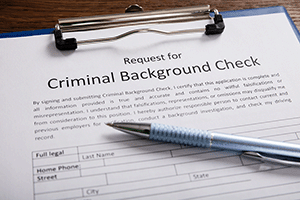Alabama Background Checks
Background checks play a significant role in modern society. They can be used for a multitude of purposes, from employment screening to tenant verification. In Alabama, as in other states, criminal background checks are paramount for safeguarding the safety and security of individuals and their respective communities. This article will help to guide you through the process of conducting an Alabama criminal background check, the types of records you might find, and the broader implications of these checks have in every day life.
How to Run an Alabama Criminal Background Check
Running a criminal background check is fairly straightforward as long as you know what resources to use.. It requires access to the right resources and an understanding of the legal landscape. Here are the steps you can follow:
1). Determine the Purpose: First, it’s important to determine why you need the background check and how it will be used. Whether it's for employment, housing, or another reason, the purpose will determine the type of check you need and the legal requirements you must follow.
2). Obtain Consent: You must get written consent from the individual before conducting an official background check. This is not only a legal requirement but also has ethical significance. If you merely want to do some research about a person's criminal past for personal reference, you do not need to obtain permission. You only need permissions for official or employee checks.
3). Use Official Resources: The Alabama Law Enforcement Agency (ALEA) offers access to criminal records for authorized purposes. You can request a comprehensive criminal history check through the ALEA’s website or by visiting their office. The process requires a fee, and you may need to provide specific information, such as the individual's full name, date of birth, and Social Security number.
4). Check County Records: In some cases, you may need to access criminal court records at the county level. County courthouses often maintain records that may not be available in state databases. Contact the appropriate county clerk’s office for information on accessing these records.
5). Department of Human Resources: The AL Department of Human Resources offers a criminal history report that the public can access. These reports will show a person's complete criminal convictions history, criminal court cases, DUIs and traffic citations, bench and arrest warrants, and incarceration records.
5). Review the Results: Once you’ve obtained the detailed report, carefully review the results. Ensure that the information is accurate and relevant to your needs. If you are running an unofficial check on someone, it is also important that you verify you have the correct person. Since unofficial checks only require a first and last name, you should also verify the middle name or date of birth of the individual, as many people have the same name.
Types of Criminal Records Found in an Alabama Background Check
When you run a criminal background check in Alabama, you may encounter various types of records, depending on the individual’s history. Here are some common types of records you might find:
1). Arrest Records: These records detail any arrests made by law enforcement, even if the individual was not convicted. They typically include the date of the arrest, the charges, and the arresting agency.
2). Conviction Records: Conviction records provide information about criminal convictions, including misdemeanors and felonies. These records often include details about the sentence, such as imprisonment, fines, or probation.
3). Incarceration Records: These records indicate whether an individual has served time in prison or jail and include details about the facility and the duration of incarceration.
4). Court Records: Court records offer a comprehensive view of an individual's relations with the legal system, including charges, trial outcomes, and any subsequent appeals.
5). Sex Offender Registry: Alabama maintains a sex offender registry, which is publicly accessible. These reports may include information about an individual's status on this registry, including their offense and current address.
The Importance of Background Checks in Society
These play a very important part in safeguarding society by helping individuals and organizations make well informed decisions. Here’s why they are so important:
1). Employment Screening: Employers use FCRA certified background checks to evaluate the suitability of candidates for specific roles. This is particularly important for positions that involve working with vulnerable populations, handling sensitive information, or managing finances.
2). Tenant Verification: Landlords often conduct checks on potential tenants to ensure that potential tenants have a history of responsible behavior and can be trusted to uphold lease agreements.
3). Public Safety: These reports contribute to public safety by preventing individuals with a history of violent or criminal behavior from holding positions of trust or gaining access to sensitive environments.
4). Legal Compliance: Many industries are required by law to conduct criminal history checks on employees, particularly in sectors like healthcare, education, and finance.
Types of Background Checks and Privacy Concerns
Background checks are not limited to criminal history. Depending on the purpose, different types of checks may be conducted, including:
1). Employment Background Checks: These checks often include criminal history, employment verification, education verification, and reference checks.
2). Credit Checks: Credit checks are usually used in financial services, rental agreements, and other scenarios where an individual’s financial responsibility is relevant.
3). Driving Record Checks: Employers in industries like transportation may require driving record checks to ensure that employees have a safe driving history.
4). Drug Testing: Some employers may include drug testing as part of the screening process, which helps to make certain the work environment is safe for other employees.
While background checks are essential for various purposes, they also raise privacy concerns. Here are some key considerations:
1). Accuracy of Information: Inaccurate or outdated information can have serious consequences for individuals. It’s important to ensure that the records obtained are current and correct.
2). Consent and Disclosure: Official checks should only be conducted with the individual's consent, and they should be informed about the scope of the check. Failure to obtain consent can lead to legal repercussions.
3). Data Security: The handling and storage of sensitive information obtained through background checks must be secure to prevent unauthorized access and breaches.
4). Fair Chance Employment: Some states, including Alabama, have “ban-the-box” laws that prohibit employers from asking about criminal history on initial job applications. This is to ensure that individuals with criminal records are not unfairly excluded from employment opportunities.
How Do I Run a Background Check on Someone in Alabama?
The easiest way to run a a background check on someone is to use a public records website service. These resources allow you to lookup anyone's criminal past and comprehensive background checks without needing to ask permission. Many of these services will allow you to run unlimited checks on as many people as you want for a monthly fee.


